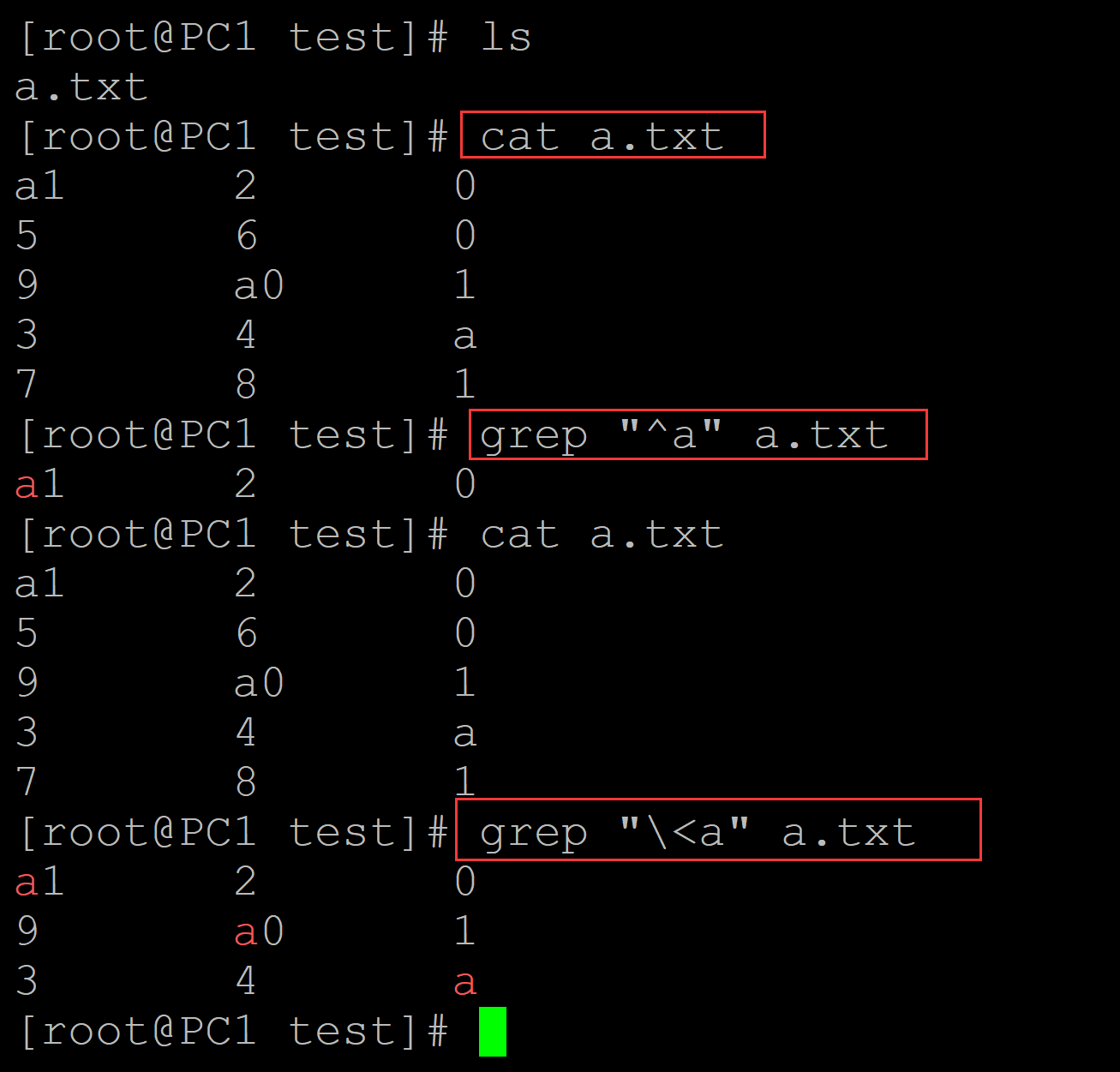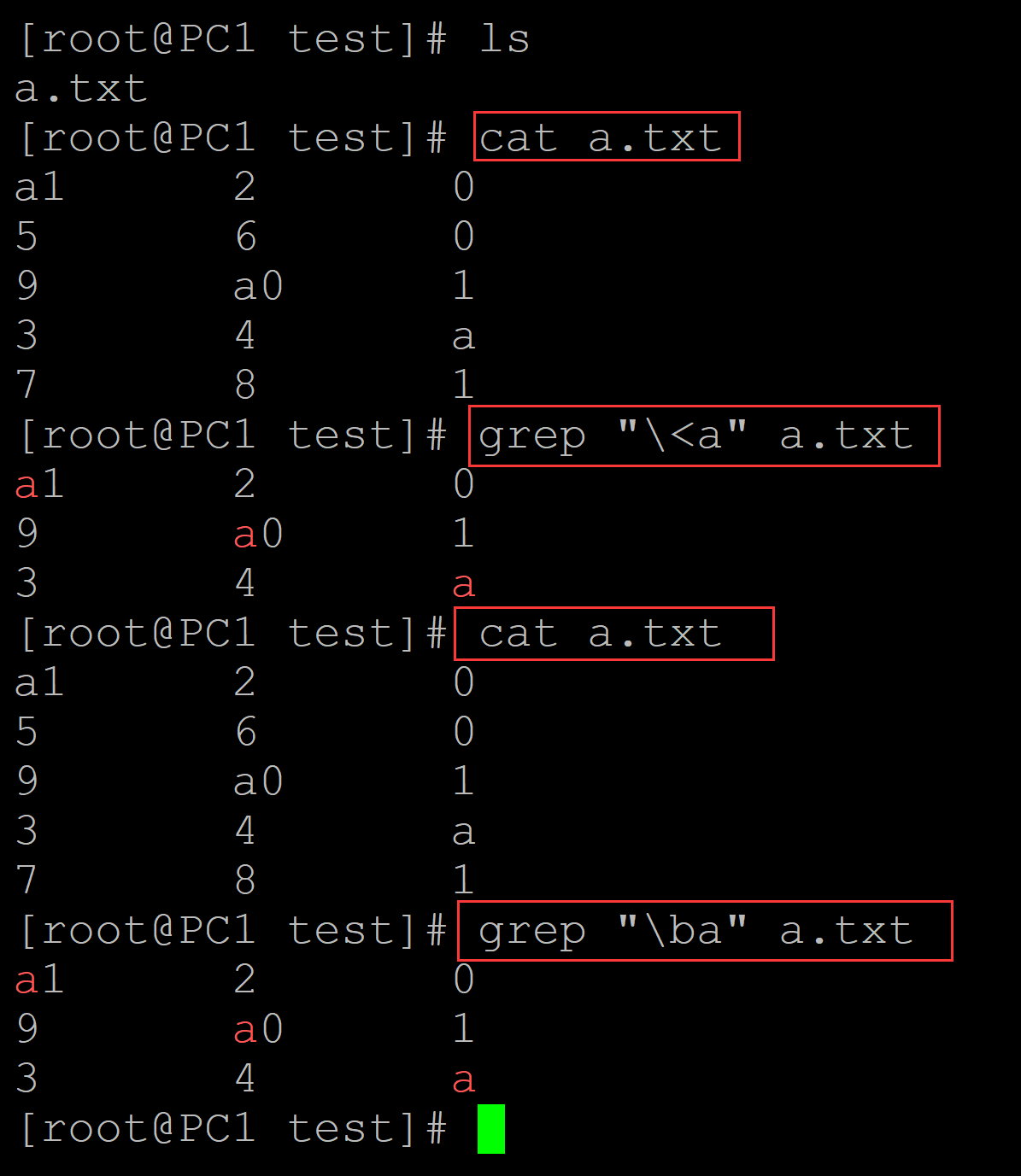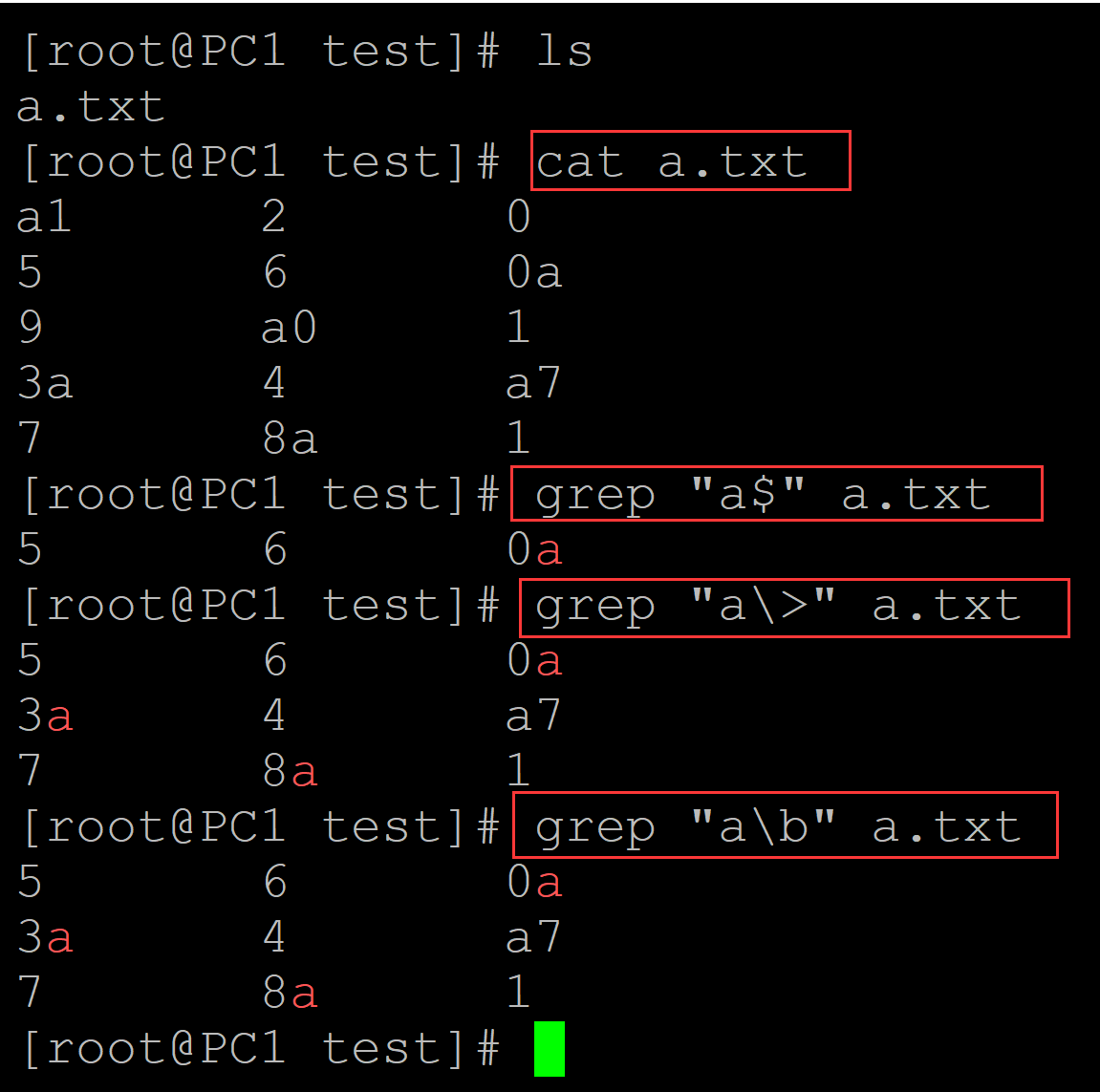linux 中提取以指定字符开头的数据^和\<的区别
001、^ 仅提取以首个字符开头的数据; 而\<提取所有单词中以指定字符开头的数据
[root@PC1 test]# ls a.txt [root@PC1 test]# cat a.txt ## 测试数据 a1 2 0 5 6 0 9 a0 1 3 4 a 7 8 1 [root@PC1 test]# grep "^a" a.txt ## 仅提取每行以指定字符开头的数据 a1 2 0 [root@PC1 test]# cat a.txt a1 2 0 5 6 0 9 a0 1 3 4 a 7 8 1 [root@PC1 test]# grep "\<a" a.txt ## 提取每个单词以指定字符开头的数 a1 2 0 9 a0 1 3 4 a

扩展:
\b 和 \<具有同样的效果:
[root@PC1 test]# ls a.txt [root@PC1 test]# cat a.txt a1 2 0 5 6 0 9 a0 1 3 4 a 7 8 1 [root@PC1 test]# grep "\<a" a.txt a1 2 0 9 a0 1 3 4 a [root@PC1 test]# cat a.txt a1 2 0 5 6 0 9 a0 1 3 4 a 7 8 1 [root@PC1 test]# grep "\ba" a.txt a1 2 0 9 a0 1 3 4 a

同样适用与\>和$:
[root@PC1 test]# ls a.txt [root@PC1 test]# cat a.txt a1 2 0 5 6 0a 9 a0 1 3a 4 a7 7 8a 1 [root@PC1 test]# grep "a$" a.txt 5 6 0a [root@PC1 test]# grep "a\>" a.txt 5 6 0a 3a 4 a7 7 8a 1 [root@PC1 test]# grep "a\b" a.txt 5 6 0a 3a 4 a7 7 8a 1




 浙公网安备 33010602011771号
浙公网安备 33010602011771号